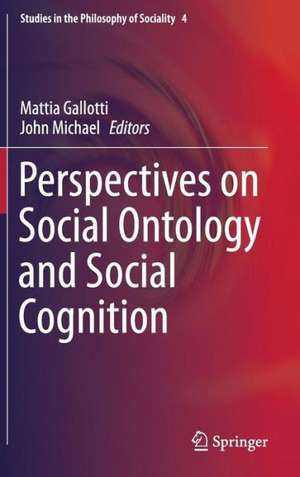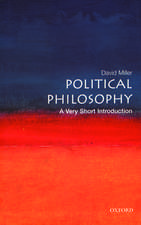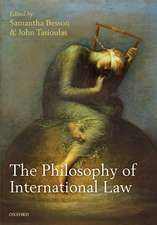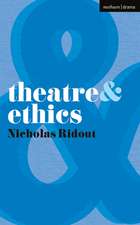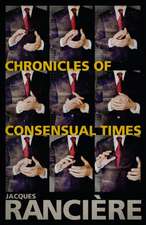Perspectives on Social Ontology and Social Cognition: Studies in the Philosophy of Sociality, cartea 4
Editat de Mattia Gallotti, John Michaelen Limba Engleză Hardback – 30 iul 2014
Based largely on contributions to the first Aarhus-Paris conference held at the University of Aarhus in June 2012, the book addresses such questions as: If the reference of concepts like money is fixed by collective acceptance, does it depend on mechanisms that are distinct from those which contribute to understanding the reference of concepts of other kinds of entity? What psychological and neural mechanisms, if any, are involved in the constitution, persistence and recognition of social facts?
The editors’ introduction considers strands of research that have gained increasing importance in explaining the cognitive foundations of acts of sociality, for example, the theory that humans are predisposed and motivated to engage in joint action with con-specifics thanks to mechanisms that enable them to share others’ mental states. The book also presents a commentary written by John Searle for this volume and an interview in which the editors invite Searle to respond to the various questions raised in the introduction and by the other contributors.
| Toate formatele și edițiile | Preț | Express |
|---|---|---|
| Paperback (1) | 635.65 lei 6-8 săpt. | |
| SPRINGER NETHERLANDS – 27 sep 2016 | 635.65 lei 6-8 săpt. | |
| Hardback (1) | 641.85 lei 6-8 săpt. | |
| SPRINGER NETHERLANDS – 30 iul 2014 | 641.85 lei 6-8 săpt. |
Preț: 641.85 lei
Preț vechi: 755.13 lei
-15% Nou
Puncte Express: 963
Preț estimativ în valută:
122.84€ • 127.16$ • 103.82£
122.84€ • 127.16$ • 103.82£
Carte tipărită la comandă
Livrare economică 06-20 martie
Preluare comenzi: 021 569.72.76
Specificații
ISBN-13: 9789401791465
ISBN-10: 9401791465
Pagini: 200
Ilustrații: VIII, 189 p. 4 illus.
Dimensiuni: 155 x 235 x 20 mm
Greutate: 0.46 kg
Ediția:2014
Editura: SPRINGER NETHERLANDS
Colecția Springer
Seria Studies in the Philosophy of Sociality
Locul publicării:Dordrecht, Netherlands
ISBN-10: 9401791465
Pagini: 200
Ilustrații: VIII, 189 p. 4 illus.
Dimensiuni: 155 x 235 x 20 mm
Greutate: 0.46 kg
Ediția:2014
Editura: SPRINGER NETHERLANDS
Colecția Springer
Seria Studies in the Philosophy of Sociality
Locul publicării:Dordrecht, Netherlands
Public țintă
ResearchCuprins
Objects in Minds; Mattia Gallotti and John Michael.- Part I. Perspectives on Social Ontology.- Are There Social Objects?; John Searle.- Deflating Socially Constructed Objects. What Thoughts do to the World; Ruth Garrett Millikan.- How Many Kinds of Glue Hold the Social World Together?; Brian Epstein.- On the Nature of Social Kinds; Francesco Guala.- Normativity of the Background. A Contextualist Account of Social Facts; Enrico Terrone and Daniela Tagliafico.- Social Ontology and the Objection from Reification; Edouard Machery.- Part II. Perspectives on Social Cognition.- Constraints on Joint Action; Cédric Paternotte.- How Objects Become Social in the Brain: Five Questions for a Neuroscience of Social Reality; Cristina Becchio and Cesare Bertone.- Materializing Mind: The Role of Objects in Cognition and Culture; Kristian Tylén John McGraw.- Perceiving Affordances and Social Cognition; Anika Fiebich.- Social Cognition as Causal Inference: Implications for Common Knowledge and Autism; Jakob Hohwy and Colin Palmer.
Textul de pe ultima copertă
Perspectives on Social Ontology and Social Cognition brings together contributions discussing issues arising from theoretical and empirical research on social ontology and social cognition. It is the first comprehensive interdisciplinary collection in this rapidly expanding area. The contributors draw upon their diverse backgrounds in philosophy, cognitive science, behavioral economics, sociology of science and anthropology.
Based largely on contributions to the first Aarhus-Paris conference held at the University of Aarhus in June 2012, the book addresses such questions as: If the reference of concepts like money is fixed by collective acceptance, does it depend on mechanisms that are distinct from those which contribute to understanding the reference of concepts of other kinds of entity? What psychological and neural mechanisms, if any, are involved in the constitution, persistence and recognition of social facts?
The editors’ introduction considers strands of research that have gained increasing importance in explaining the cognitive foundations of acts of sociality, for example, the theory that humans are predisposed and motivated to engage in joint action with con-specifics thanks to mechanisms that enable them to share others’ mental states. The book also presents a commentary written by John Searle for this volume and an interview in which the editors invite Searle to respond to the various questions raised in the introduction and by the other contributors.
Based largely on contributions to the first Aarhus-Paris conference held at the University of Aarhus in June 2012, the book addresses such questions as: If the reference of concepts like money is fixed by collective acceptance, does it depend on mechanisms that are distinct from those which contribute to understanding the reference of concepts of other kinds of entity? What psychological and neural mechanisms, if any, are involved in the constitution, persistence and recognition of social facts?
The editors’ introduction considers strands of research that have gained increasing importance in explaining the cognitive foundations of acts of sociality, for example, the theory that humans are predisposed and motivated to engage in joint action with con-specifics thanks to mechanisms that enable them to share others’ mental states. The book also presents a commentary written by John Searle for this volume and an interview in which the editors invite Searle to respond to the various questions raised in the introduction and by the other contributors.
Caracteristici
First collection of contributions combining research on social ontology and social cognition Explores theoretical and empirical literature on the ontology of artefacts that has rapidly expanded across the sciences of mind and brain Contains new commentary by and interview with John Searle in which he addresses the criticisms raised by the other authors Includes supplementary material: sn.pub/extras
